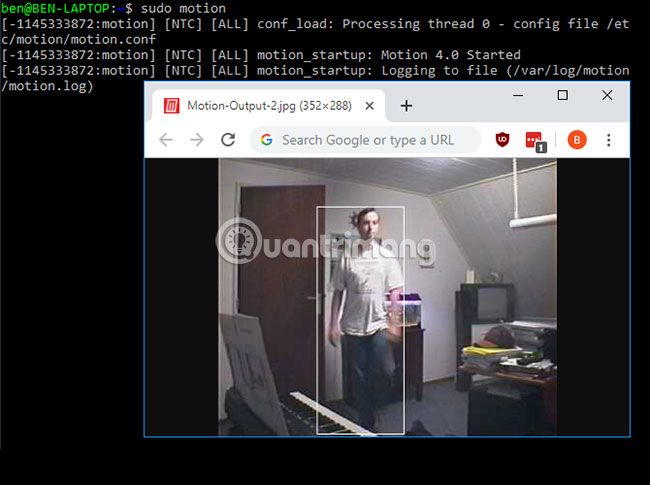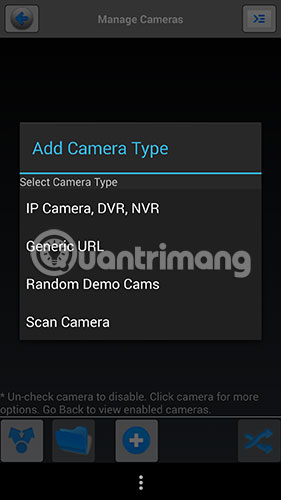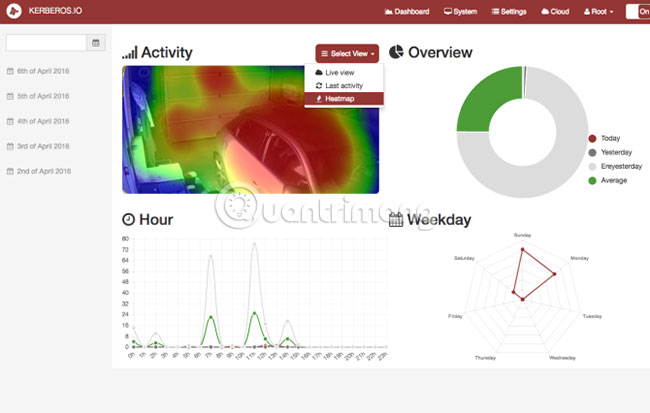6 best DIY security camera software for Linux
Security is a major concern in the technology world, but we're not just talking about phishing attacks and malware. Old dangers, such as intrusion and theft, threaten property in the home and the business, which is why there is a potential market for top quality monitoring systems.
Thankfully, you don't need to pay hundreds of dollars for a surveillance system if you already have a Linux PC and a few backup cameras. DIY devices will be much cheaper and give you better control, as long as you choose the right software. Here are the best Linux security software options you can try.
Top 6 perfect security camera applications for Linux
- 1. ZoneMinder
- 2. Xeoma
- 3. Motion
- 4. Bluecherry
- 5. Ivideon
- 6. Kerberos.io
1. ZoneMinder

ZoneMinder is a great option for homemade surveillance systems. Professional features make ZoneMinder the perfect solution to ensure security for both home and business. ZoneMinder comes with compatibility for both standard PC cameras and IP support. If you're on the move, Android and iOS apps allow you to monitor your camera remotely.
You have a lot of options to configure ZoneMinder on your own, both live video and regular still images are supported. Email and SMS notifications help you receive news regularly, even if you don't follow it directly. In addition, ZoneMinder provides user levels to allow you to limit who has access. ZoneMinder is versatile with options for camera zoom, tilt and pan (zoom image, tilt up / down and pan rotation).
Linux CCTV users benefit from installers for different distributions like Ubuntu and Debian, but you can also compile from source if you prefer. You can also deploy ZoneMinder on low-power devices like Raspberry Pi.
2. Xeoma

If you are looking for easy-to-use Linux IP camera software, Xeoma is a consideration worth considering. Xeoma advertises itself as a super easy video surveillance program. Xeoma's approach is modular, allowing you to add the components and features you need when setting up your system.
This Linux security camera software has many features. It is compatible with everything, from ordinary USB webcams to CCTV WiFi cameras. You can connect up to 2,000 cameras with a Xeoma installation, a perfect option for commercial purposes.
Images taken from all screens at the same time, remote access and motion detection are all features that make Xeoma a great choice for users. Xeoma also supports mobile device access, with SMS and email notifications, as well as remote access to storage, cameras and settings. You can also take advantage of different storage settings, delayed logs and even algorithms to avoid inaccurate results. This second feature is great for users with pets or small children.
Besides the paid option, Xeoma offers a free version with a few restrictions (only 8 cameras and 3 modules for each series). Overall, Xeoma is a simple but comprehensive option to track your home or workplace.
3. Motion

From the name of this software, make sure you can guess which Motion will track the motion. This free program is capable of detecting if the main part of the image from the video signal changes. Written in programming language C, Motion is created specifically for Linux distributions with video4linux interface.
Although saving video when detecting motion, Motion also includes time-lapse settings for regular monitoring. You can also install Motion to save as video or image. Motion does not need a GUI, making it lighter than other Linux monitoring software competitors.
That's what makes Motion a great option if you're looking to build cheap DIY (or NVR) surveillance cameras to run on low-power devices like the Raspberry Pi. Motion will record surveillance images or videos in digital, local (on SD card) or local network.
Motion may lack features compared to other NVR Linux software, but it is a good choice if you are looking for a basic motion sensor camera system.
4. Bluecherry

If you want to run open source software, Bluecherry is the Linux NVR for you. It has a cross-platform video surveillance system so you can freely run on any favorite platform.
The installation process is very simple, with a single-line installation script available for Ubuntu, Debian and CentOS. Bluecherry supports more than 2,600 IP cameras, with the ability to playback recordings or live streams available from the browser. Unfortunately, Bluecherry lacks a dedicated Android and iOS mobile app, but supports integration with the IP Cam Viewer. Do the following:
- First, download the IP Cam Viewer version for iPhone or Android. The screenshots below are from the Pro version. However the free version will work similarly.

- Click the '+' sign to add a camera.

- Be sure to choose IP Camera, DVR, NVR .

- Select Bluecherry from the list.

- Add the following fields:
- Name: (Anything you want the camera to be displayed inside IP Cam Viewer)
- Model: Bluecherry DVR
- Host / IP: IP address or host name of Bluecherry server.

- Make sure to select HTTPS Port and change the port to 7001. Channel # is the device ID, which can be found in Bluecherry Admin> Devices (see below). Enter the login and password for the server, then click Test and when you have the image, click Save.

Although Bluecherry is free and open source, paid support packages are also available for business users. With a rich set of features and paid support options, Bluecherry is a great choice for both businesses and households.
5. Ivideon

If you are designing a DIY surveillance system with a limited budget, you should consider Ivideon. System requirements are minimal for any DIY DVR, you can run Ivideon on PC Atom, with only 1GB of RAM and 500MB of storage. However, you need at least 11GB to store videos daily, if you want to store locally.
Despite low resource resources, Ivideon is a service integrated with the cloud, with notifications and playback features available over the Internet. You can also store your logs using Ivideon's cloud storage memory.
The installation is quite simple. You can download and run the installation script or run individual commands from the terminal window. Like many other video surveillance systems, Ivideon offers a mobile application for Android and iOS devices. Ivideon officially supports the latest Debian and Ubuntu releases, but it can also be installed on other releases.
Home users have a range of packages to choose from, including a basic online package (but feature rich), and business users will have to pay for the $ 5 (115,000VND) / month package.
6. Kerberos.io

Kerberos.io is another free NVR software for Linux, compatible with most Linux-supported cameras. Kerberos.io is a cross-platform application so you can run it on Windows and macOS as well as Linux. You can even download a docker container to manually set up in minutes without configuration.
With support for Raspbian, Kerberos.io is the best choice for users who want to create a monitoring system with low energy technology. Notably, Kerberos.io also has a clean, modern and easy to use web interface.
If you don't want to spend a lot of time setting up, configuring or maintaining your system, Kerberos.io is one of the best options on Linux. Although Kerberos.io is free, certain features (such as viewing remote cameras) require registration with prices starting at around $ 2 (VND 46,000) per month.
Building your own DIY Linux monitoring system can help protect homes and businesses from more traditional threats. They can also play an important role in building a smart home with other DIY projects available.
If camera system autonomous sounds a bit complicated, don't worry. Instead, choose one of the best home security cameras after referring to the article: Surveillance Camera: Should I buy a wired or Wi-Fi type?
Wish you find the right choice!
You should read it
- ★ Synthesis of 5 software for viewing wifi cameras on computer phones
- ★ Top 5 best outdoor security cameras 2020
- ★ The risk of being 'reverse tracked', revealing a private image from a security camera
- ★ How to set up livestream Raspberry Pi security camera
- ★ 5 best wireless security cameras for the house